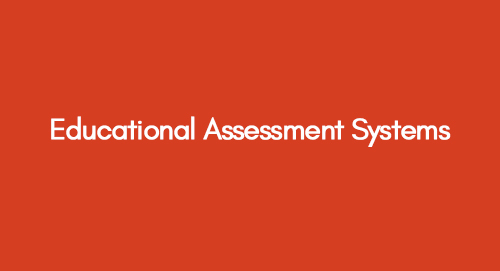
Industrial Application of Energy Audit
January 30, 2021
Organizational Theory – Das Kapital.
January 30, 2021Engineering Institutions and their differences
There are 36 Engineering Institutions in the UK, which are licensed by the Engineering Council. These institutions are given the responsibly by the Engineering Council to assess the candidates/applicants and register candidatures as professional engineers and technicians. These institutions are also responsible to recognize and provide support in the development of academic and professional schemes. These institutes conduct competence tests of candidates, assess their commitment, monitor and contribute in the professional development of the candidate, and also monitor conduct of the registered members.
The difference between the Licensed Engineering Institutions is solely based upon the field of the engineering work involved. The Institutions have been developed to support the specific fields and course of works involved. These intuitions are all supervised by the central body of Engineering Council. For example; Institution of Civil Engineers – ICE, has been developed for the field of Civil Engineering. Similarly, Institution of Chemical Engineers – IChemE, has been developed for Chemical Engineering. These are global and professional organizations that offer memberships for their respective fields.
These organizations offer their members with the chartership status on behalf of the Engineering Council. Each institution, such as IChemE, also offer memberships to the academic institutes/departments in their respective fields to assure that all the students having completed their education may become members through the educational institutes. This also allows the students to become aware of the main governing body established for their field of study, and befits of becoming a registered member of this body, and the befits of the chartership status. This motivates the students to plan their carrier in light of gaining the chartership status (Engineering Council, 2013).
These institutions are governed by the elected members of the council. The governing body of the institutes looks into the matters such as chartership issues, budget, membership-issue, policy makings and coordination with other members/institutes. Chartership status of any of the thirty six members of the engineering council holds a key significance for any member member/applicant. This list containing all the licensed engineering institutes can be obtained from Engineering Council web page (Engineering Council, 2013)
The Role of Engineering Council:
The Engineering Council is a body that regulates the profession of engineering in the United Kingdom. The role of the engineering council is to maintain and set engineering standards in line with the intentional requirements; which are specified in the UK Standard for Professional Engineering Competence i.e. UKSPEC. The body holds more than 230,000 registered members of the country till date, titles representing; chartered and Incorporated Engineers, Chartered Engineering-Technicians and Chartered Information Technology engineers/technicians. The responsibility of the Engineering Council is to assure that the society continues to have trust and confidence in the field/profession of engineering. This trust is developed though providing chartership qualifications/status through a reliable regulatory body, which assures that all the professional attributes are well equipped in the chartered member (UK-SPEC, 2013; Engineering Council, 2013).
The provision of these titles awarded to the engineers through a well recognized body ensures that the employers can have the services of qualified, trained and experienced engineers with complete trust. This sets a platform for employees and the employer to have an agreement on the required standards needed to be met before a person is enrolled as a chartered member, which eventually develops trust, respect an understanding between the employer and the employee. Many government organizations, leading engineering companies and private firms prefer the services of the chartered members of the engineering council. The chartered members are therefore rewarded with enormous opportunities worldwide. They are required in almost every part of the world.
In order to have the registration with the engineering council, the applicant must have membership form a professional engineering institution. There are thirty six institutions which are licensed by the engineering council. The choice of the institution for which one would like to become a member with must be carefully considered. The institution to be selected must be of the same engineering discipline in which one works in. There might be cases when engineers may select/join more than one institution, depending on the kind of they work they are involved in and/or discipline of their studies. For example; if one hold academic back ground of Chemical Engineering and also holds work experience in the field of Water and Environmental Engineering, he/she may join both Chartered Institution of Water and Environmental Management -CIWEM and Institution of Chemical Engineers -IChemE institutes (IchemE, 2013)
References
Continuing Professional Development, 2013. Institute of Civil Engineering-ICE, 3006A, Update of MGN 39 with ICE 3190. pp. 3-11
Engineering Council, 2013. The Engineering Council Regulatory Body of UK. Available online at: <http://www.engc.org.uk > [Accessed 19 March 2013].
IchemE, 2013. The Institution of Chemical Engineers. Available online at: <http:// http://www.icheme.org> [Accessed 20 March 2013].
ICtTech, 2008. Information and Communications Technology Technician: The Standard. pp. 2-8.
Personal Development Audit Handbook, 2012. Faculty of Arts, Design & Technology Design, School of Technology, University of Derby. pp. 2-13
UK-SPEC, 2013. The UK Standard for Professional Engineering Competence. Engineering Competence: Knowledge: Experience: Commitment. Engineering Technician, Incorporated Engineer and Chartered Engineer Standard. pp. 4-30. Available online at: <http://www.engc.org.uk/ukspec.aspx> [Accessed18 March 2013].
Get 3+ Free Dissertation Topics within 24 hours?

























